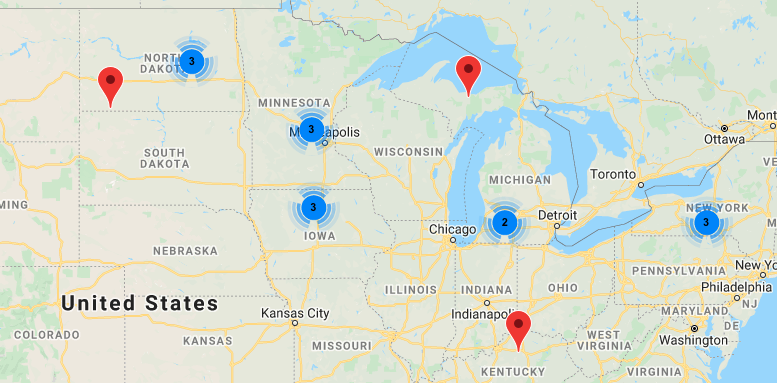By Chaunce Stanton, Marketing Manager
With its proven winterhardiness, rapid establishment, disease resistance, and consistent and rapid pollination, hybrid winter rye varieties dominated cereal rye trials again in 2020.
In six trials, representing a total of 18 locations from North Dakota to New York, KWS hybrid rye crushed open-pollinated cereal rye. In fact, the first-place yield results in each of the six trials belonged to one of four KWS hybrid winter rye varieties: KWS Bono, KWS Brasetto, KWS Tayo, or KWS Serafino.
2020 Multi-State Regional Rye Trials Summary
The data from the six regional trials we’re exploring in this article come from the following rye trials in 2020:
- NDSU Winter Rye Trial Results – 4 locations, 10 varieties
- University of Minnesota Winter Rye Field Crop Trials – 3 locations, 13 varieties
- Practical Farmers of Iowa Cereal Rye Variety Trial – 3 locations, 9 varieties
- Michigan State University Cereal Rye Variety Trials – 3 locations, 15 varieties
- University of Kentucky Cereal Rye Variety – 1 location, 13 varieties
- Cornell University Hybrid Winter Rye Regional Trial – 4 locations, 9 varieties
You can find the source trial documents in the links above or you can visit our Trials page to see results for a variety of crops.
Let’s dig in and draw some conclusions from these trials.
KWS Hybrid Rye for Huge Yields (+41%)
For reference, across all six trials, the average yield mean was 65.2 bushels/acre and the average test weight was 53.2 pounds/bushel. That’s a pretty decent baseline for a typical rye field, but here’s how each of the KWS hybrid rye contenders stacked up across trials (with any trial exceptions noted).
The average of the identified KWS line-up performed at 41 percent more than the overall trial mean average.
While it’s true that KWS hybrid rye varieties require a license and typically are more expensive than their open-pollinated relatives, the return on investment is clear in terms of yield, test weight, and ease of management.
Think of the difference between planting “grandpa cereal rye” and KWS hybrid winter rye as the difference between owning a bicycle and owning a Dodge Ram 1500 pick-up truck. Yes, you need a license for the truck, and, yes, it costs more upfront.
But you can’t haul 90 bushels an acre to town on your bike.
Contact us at Albert Lea Seed at (800) 352-5247 to discuss how hybrid rye fits in your rotation.
Incidentally, we’ll be discussing hybrid winter rye at our upcoming Small Grains Virtual Conference on February 4, 2021, 10 am – 2 pm. The conference is free. We’re hosting it on Zoom, and you’ll need to pre-register to receive the meeting access information. Register at: bit.ly/3hdjrT3


